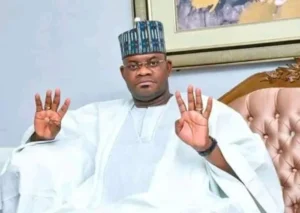
By David Akinmola
The Nigerian Senate has approved President Bola Tinubu’s request to secure $21.5 billion in external loans for the 2025–2026 fiscal period, a key component of the Federal Government’s medium-term economic strategy aimed at financing infrastructure, social investment, and budgetary support.
The approval, granted during plenary on Tuesday, followed the presentation and adoption of a report by the Senate Committee on Local and Foreign Debts, chaired by Senator Haruna Manu. The loan request had earlier been transmitted to the National Assembly by President Tinubu in 2024 as part of the Federal Government’s 2025–2027 borrowing plan.
According to the committee’s report, the approved loans will be sourced from a mix of multilateral and bilateral institutions, including the World Bank, African Development Bank (AfDB), Islamic Development Bank, and other concessional sources. The funds will be spread across priority sectors such as power, transport, education, water resources, agriculture, and health.
Chairman of the committee, Senator Manu, said the borrowing would be used to fund critical infrastructure projects that have the potential to stimulate economic growth, enhance job creation, and improve the living standards of Nigerians. He added that the loans were largely concessional, with favorable interest rates and long repayment periods.
“These are not commercial loans. They are tied to specific development projects and are essential for Nigeria’s long-term growth and competitiveness,” Manu stated during the Senate session.
President Tinubu, in his earlier correspondence to the National Assembly, had argued that the borrowing was necessary to close Nigeria’s huge infrastructure gap, support post-COVID recovery efforts, and improve fiscal sustainability. He assured that the government would maintain a responsible borrowing approach and ensure transparency in the management of the loans.
However, the approval did not go without debate. Some senators raised concerns about Nigeria’s rising debt profile, warning that continuous reliance on external loans could put future generations at risk. But the majority of lawmakers agreed that with the country’s revenue constraints, borrowing remained a viable tool to finance growth—if efficiently and transparently managed.
With this Senate approval, the Federal Government can now begin negotiations and drawdowns with its external creditors, subject to the terms and conditions set by each lender.
Analysts say the approved loan plan may ease budgetary pressures and unlock stalled development projects but emphasize the importance of fiscal discipline, timely project execution, and accountability to avoid adding to Nigeria’s debt burden without measurable returns.
As of the end of Q1 2025, Nigeria’s total public debt stood at over ₦121 trillion, with external debt making up a significant portion. The government has repeatedly said that its borrowings remain within sustainable limits, based on GDP ratios and other fiscal indicators.
The Senate’s approval is expected to pave the way for accelerated implementation of the 2025 budget and other strategic development plans under the Tinubu administration.








